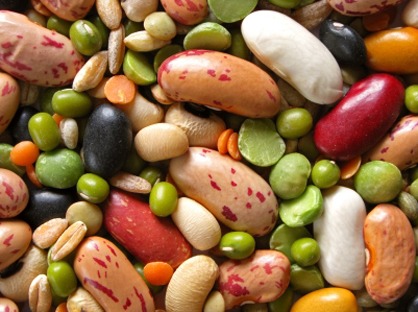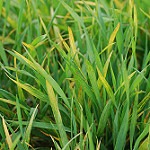
GM/Biotech Crops Report – July 2017
4th July 2017- GM/Biotech Crops Monthly Reports (BELOW) form part of BCPC’s free three-tier Biotech Crops Info service.
- This service also includes a weekly round-up of news from around the globe – see BCPC Newslink GM Crops section.
- Plus – Free access database on over 300 GM/biotech products covering 23 crops in the global market visit BCPC’s GM/Biotech Crops Manual – Register here for free access.
Already registered? Click here
GM/Biotech Crops Monthly Report July 2017
 |
A powerful new antibiotic Vancomycin is an old antibiotic from a bacterium that rarely works these days because of resistance. However, scientists have tinkered with the molecule and engineered in three separate modes of action to kill the resistant bugs. It is now 1000 times more effective and with three separate modes of action it is hoped that it will not suffer from the evolution of resistance. More |
|---|---|
| GM Sugar at last
One of the reasons cited by British Sugar for not wishing to adopt sugarbeet resistant to glyphosate has always been that it might push some of their customers to use cane sugar because of anti-GM feeling. Now Brazil has given commercial clearance to sugarcane with the Bt gene inserted to confer resistance to Lepidopteran insects such as the sugarcane borer. Perhaps after Brexit we may be able to adopt a simple method of weed beet control in sugarbeet by growing glyphosate-resistant varieties. More |
 |
 |
Rice with an adjustable immune system
The Sainsbury Laboratory in Norwich has dramatically improved the immune system of rice. Where others have adjusted the NPR1 gene it has resulted in improved disease resistance but stunted plants and reduced yield, the Sainsbury Laboratory has got it to work without these adverse effects. More
|
| Reduced glyphosate residues in GM cotton
The Chinese Academy for Agricultural Science has optimised two of the resistance genes in cotton to produce lines that are five times more resistant to glyphosate and have a ten-fold decrease in glyphosate residues. More
|
 Source: Jonas Tona |
 |
GM Mustard for commercial release in India
Mustard that has a 20-30% yield advantage over other varieties is likely to soon be grown in India as calls are made to hasten commercial release. Has this yield gain already been expressed in oilseed rape? More |
| Wheat with effective wheat streak mosaic virus resistance
resistance genes for this virus were identified 25 year ago but only work at comparatively low temperatures. Now Kansas University has found that the Wsm3 gene also confers resistance and works at temperatures of 75°F and above. More |
 |
|
|
Synthetic photosynthesis
Artificial trees made of moss are proposed to combat air pollution in cities but now the US Department of Energy has gone one step further. Using rhodium ions to capture light energy, they have devised a system that produces hydrogen presumably from water with the release of oxygen. I’m sure those companies developing hydrogen cell cars will be very interested in this development. More |
| New bactericide
Researchers at the University of Kentucky working on how legumes fix nitrogen have identified two peptides that kill bacteria. By manipulating these genes they hope to improve the nitrogen fixation achieved by the plants but could they have a wider role as bactericides? More |
 |
THE LATEST ADDITIONS TO THE GM/BIOTECH DATABASE ARE:
-
- MON87491 – maize with glufosinate and dicamba tolerance approved for food use in Taiwan and Japan.
- MON87427 x MON89034 x MIR162 x NK603 – maize with glyphosate tolerance and lepidopteran insect resistance approved for food use in Columbia.
- 3272 x Bt11 x MIR604 x TC1507 x 5307 x GA21 – maize with glufosinate and glyphosate tolerance, Coleopteran and Lepidopteran insect resistance and modified starch content approved for food use in Columbia.
- Bt11 x MIR162 – maize with glufosinate tolerance and Lepidopteran insect resistance approved for food use in Columbia.
- MON87751 – soybean with Lepidopteran insect resistance approved for food use in Columbia.
- SYHT0H2 – soybean with glufosinate and mesotrione tolerance approved for food use in Columbia.
- DP305423 x GTS 40-3-2 – soybean with glyphosate and sulfonyl urea herbicide tolerance and modified oil content approved for food use in Columbia.
- 73496 x RF3 – oilseed rape with tolerance to glufosinate and glyphosate now approved for food and feed use in South Korea.
- CTB141175/01-A – sugarcane with resistance to sugarcane borer now approved for commercial use in Brazil.
FOR INSTANT ACCESS TO GM BIOTECH MANUAL CLICK HERE (Registration required)
Already Registered? Click here to access


